

I love my mother in different ways. She knows how to set me right when I do something wrong. She also teaches me to show respect toward older people. She says nobody likes a child who is disrespectful and ignores his or her parents. I love my mother very much because she cares and tidy me up. She also works in the garden so we can get juicy fruit that will make me grow healthy.

I am taking a picture of the home. What can I be without my home? I love my home, I sleep in my home. When I grow older I will improve it and make it look better.

These are my village friends. The oldest is 14 years old while the youngest is 11 years old. They are staying with their aged grandmother, as their mother works in Johannesburg. It is them who clean their home and you can see it is spot free. Sometimes I feel sorry for them because there is no one taking care of them.


Goats are milked when they have baby goats. Their milk is suitable for coffee drinking and also to feed malnourished child. Goats are also kept for their meat, to be used in traditional rituals, and to be sold for money.

I take my grandmother’s picture because I love her, she is my mother’s mother. We stay together at home. My grandmother’s age is 66 years old. What is important is that I love her. She conducts herself properly and I respect her as she respects me.

It is painful if you see these kids staying without house and with no food. These kids they don't have parents and they go to the streets waiting for people who came from town and ask money for food. The mothers of our nation must take these kids to their home and give them food so that they can have energy.

I feel pain that there are young boys who want to show their talents. My dream is that the community must call a meeting with the council to talk about this issue that they don't have playing grounds so that they can get a solution.


Sport does not discriminate people's gender. Many people believe that soccer is played by males but females can play too.

This is my mother. She is 49 years old. What she is doing for me in life: send me to school, cooks so that we have something to eat at home. Unfortunately my father has passed on.


I take the photograph of a toilet because our school toilets are in a very bad condition. In our toilets there are flies all over and there is a bad smell. That smell harm us. We need drainage toilets. I feel angry about our toilets because at the end of the day we will get ill.
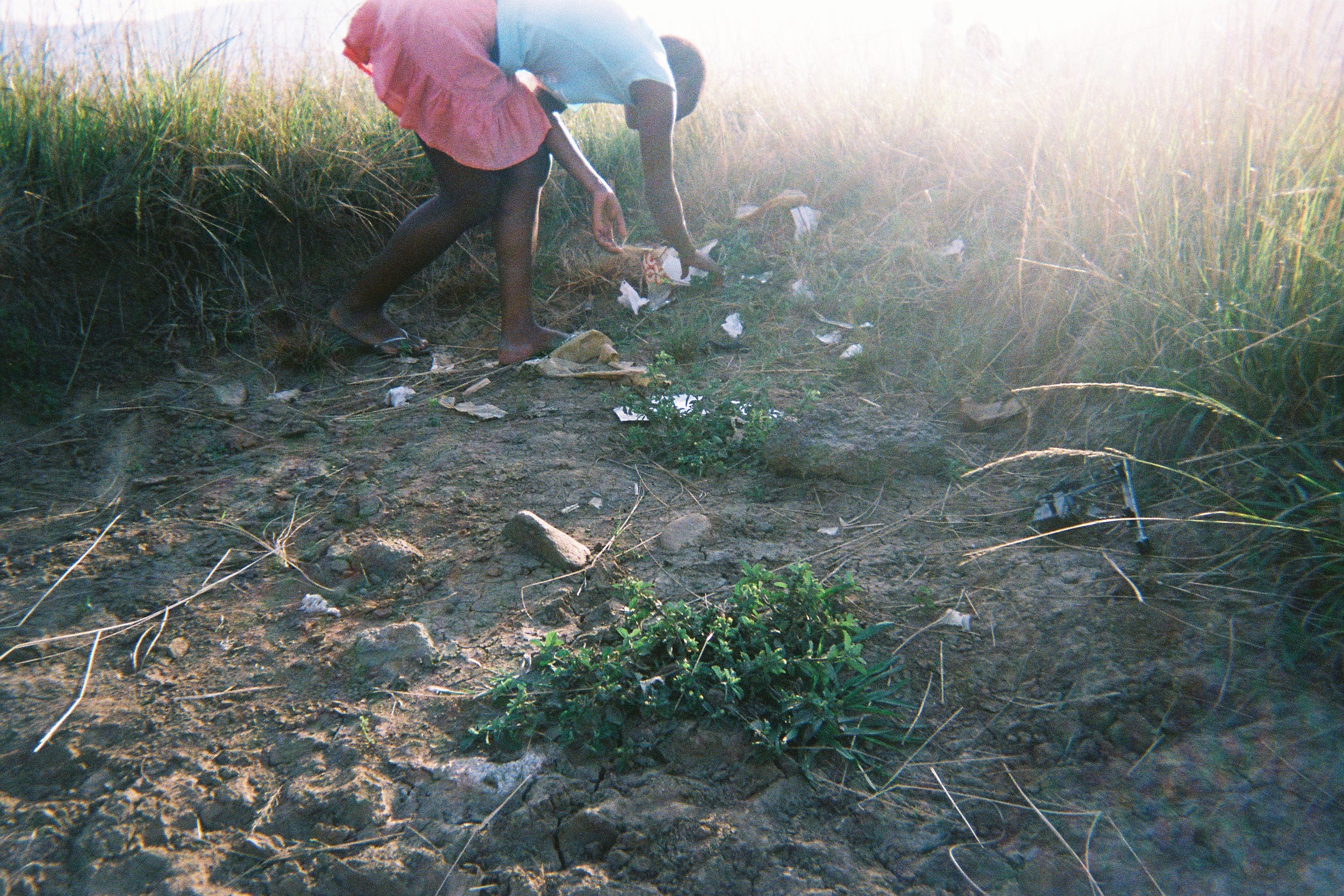
We would like to have our rubbish bins because in our community we have land pollution or polluted lands.

This is my beloved grandmother. She is watering the vegetables so that we can eat. Vegetables are nutritious for us to be healthy.

My grandmother is my best role model because she always teaching me many jobs that I can do. She always teach me to paint the house inside and outside. My grandmother is my light. If I done something wrong she come and sit with me and talk to me. If it was my fault she tell me to stop doing that thing.

Many young woman and girls are still doing the house chores like ironing for boy and children. Practising gender roles in this situation is that man can also iron.


The road in my community is not in good condition for human being and it would make people suffer from many diseases such as TB.

This is mother breastfeeding Luvokazi who is one year old. I love my baby sister Luvokazi. Mother takes care of her all the time.

My father is 50 years old. He is not working. This picture shows how he works around everyday. From this garden we get food which keeps us healthy and well fed. I love my father even if he has no money.

Look at this land. People are not cultivating the land. They don’t have money. Government charges R850 a household. Let’s hold hands Africans, there is no money. Our fathers are striving for us.

This is the valley that runs through our village, Mabhalwini. This stream is important to us because we don’t have water. But it causes us to get sick because people are polluting it.
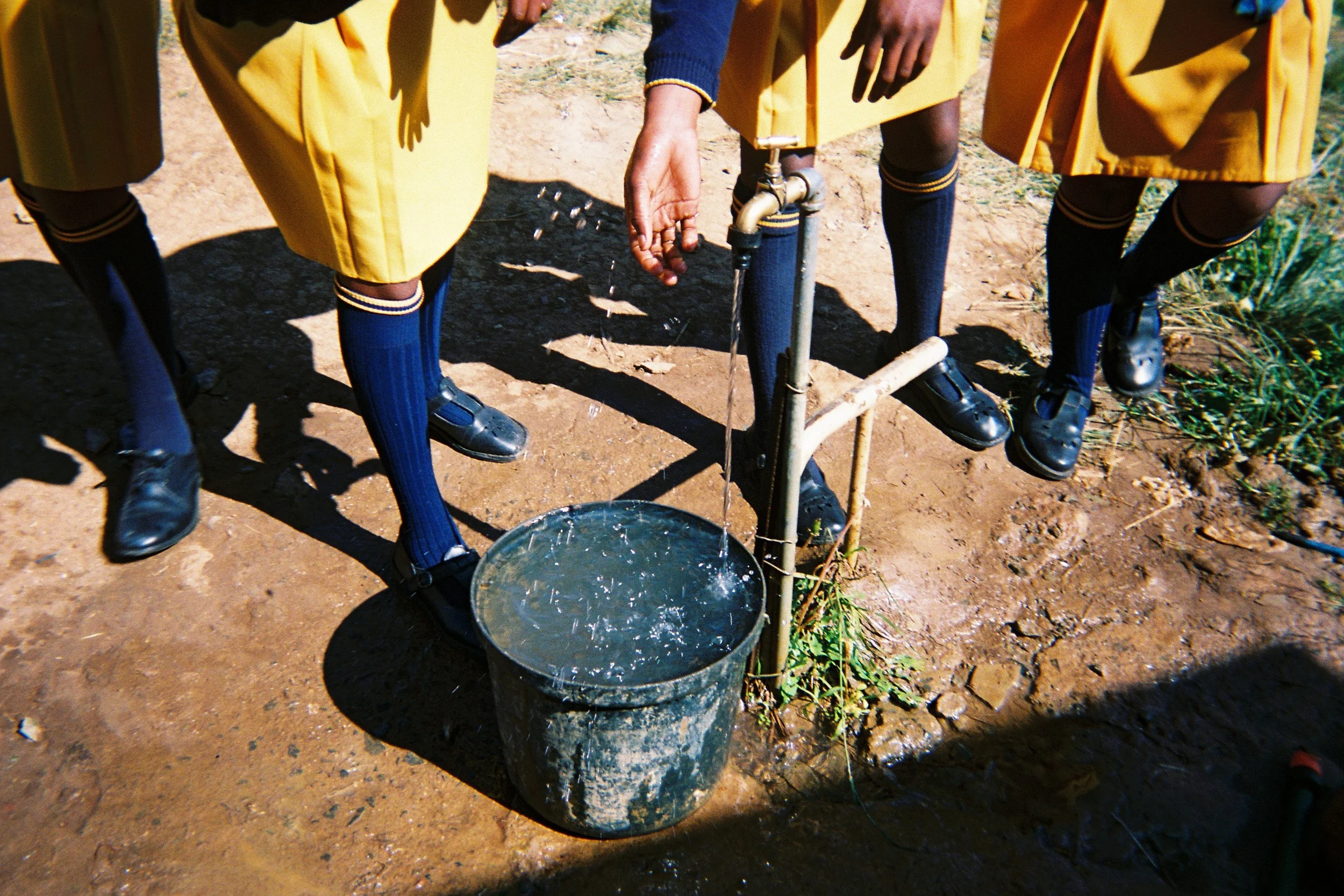
At our school we have one tap but we have many learners. Girls must have their tap and boys must have their tap. Because when the boy wants to drink and there is a girl on the tap he just push the girl.

My life is different because now we drink clean water for the tap. In the river some people do whatever they like to pollute water.

Before you cook you are forced to fetch water in the river. At home they say it's a job of girls to fetch water. When I carry water I feel bad because at home there is no tap but other families have taps. I feel bad because when I fetch water it is heavy and I have a headache.

I love my Grandmother. "She is a super star..." in the sky and shining for our nations.



This man is ironing for his wife. He is doing gender equality. I love man like this.
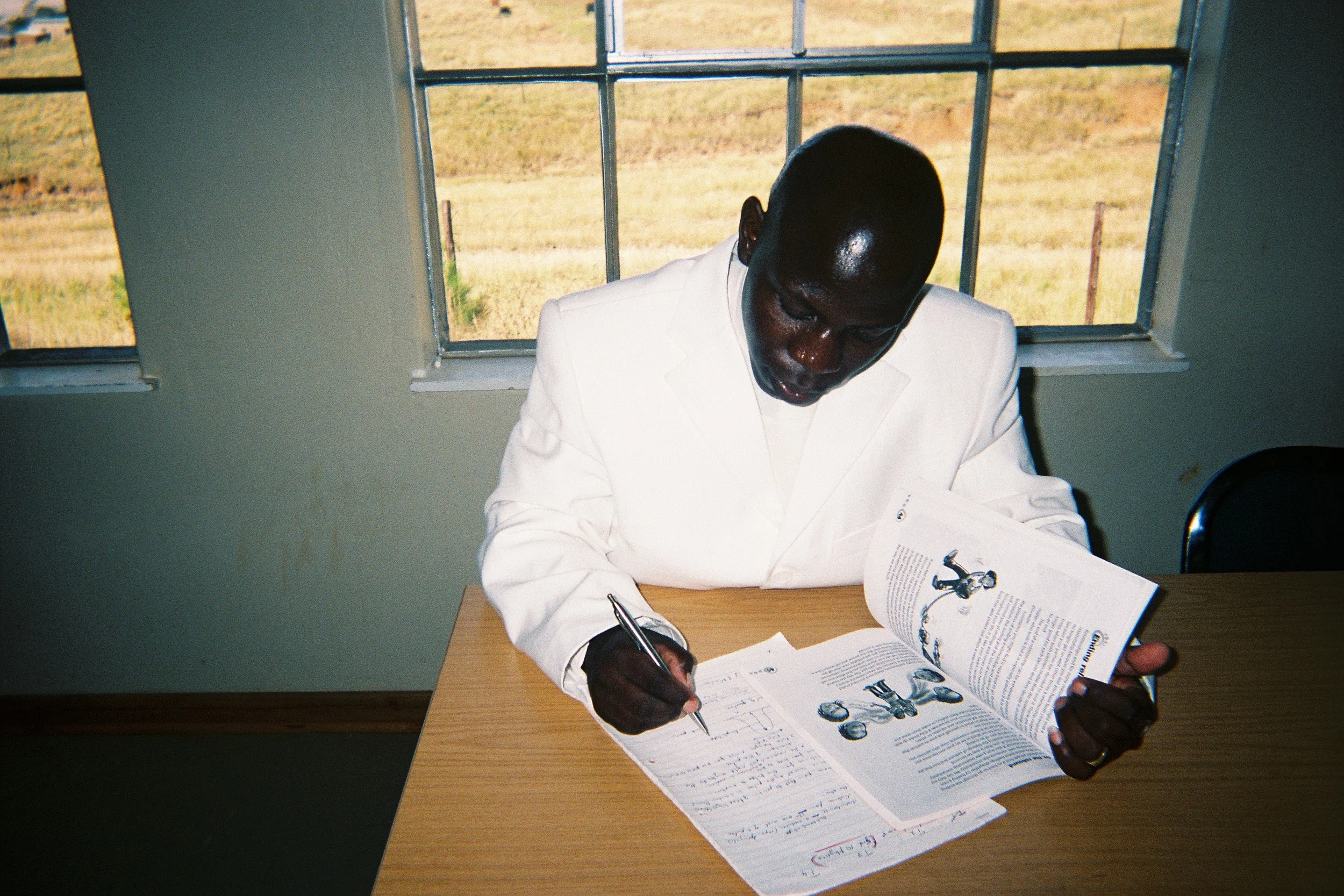
I took that photo of an educator who is my role model. Mr. Pandelina used to teach us very well and when he gave us a task he made sure that it was marked and signed. He is always a busy man and he motivates us.


One day I want to have a marriage when I'm old. I want to look after myself until I marriage. Here people don't want to have a marriage.

I want to show people that in Nkandla Village of Esikhaleni we still have those children who like to show people that she is proud of being South African and she is also proud of being a girl. This child still goes to virginity testing and she is proud of doing this because she wants to stay away from HIV/AIDS, STIs and STDs. She go every month to virginity testing. People disagree about thtat because they say their children can be raped by men who are HIV positing hoping that it will be cured.

I want to encourage people about that it is dangerous to leave a baby walking alone.



I want to show everyone that they must prevent spreading of HIV. This child is orphan because of this disease.


This is my family’s livestock. I love it very much because it is valuable to us all. When we have to perform traditional rituals we use it. We also make use of it when ploughing fields. We get milk from it.


I feel happy because they are taking care of the cow because it cannot take care by itself. I hope that their cows would increase. The man and the woman work together because I told them that they must work together because we are all equal and there are no jobs for only mens or for only womens. We all can do all works everytime.

I feel happy because it shows that we are all equal. Girls can do boys job and also boys can do girls job.

This man is 21 years old. He milks the cows so that we can be healthy and active at school. I love him because he shows the right way to us still growing up.

I feel happy because it’s necessary for the children to be given food at school. Other children like coming to school because they get food. These children like food very much and that makes them interested in school.

I see many children suffering from povery. They go to school without breakfast and when they come back home they don't eat food that has a well-balance diet., they sell snack and sweets to survive.


We are short of electricity. I would try to call a meeting that they can discuss about electricity, then we can try to contact government and Eskom [utility company]. Then we tell them about our problem.

It is hard to get this wood to make fire. Sometimes when we go for this wood we get harmed by sharp woods in the ground, so that way we get afraid to go and look for it.
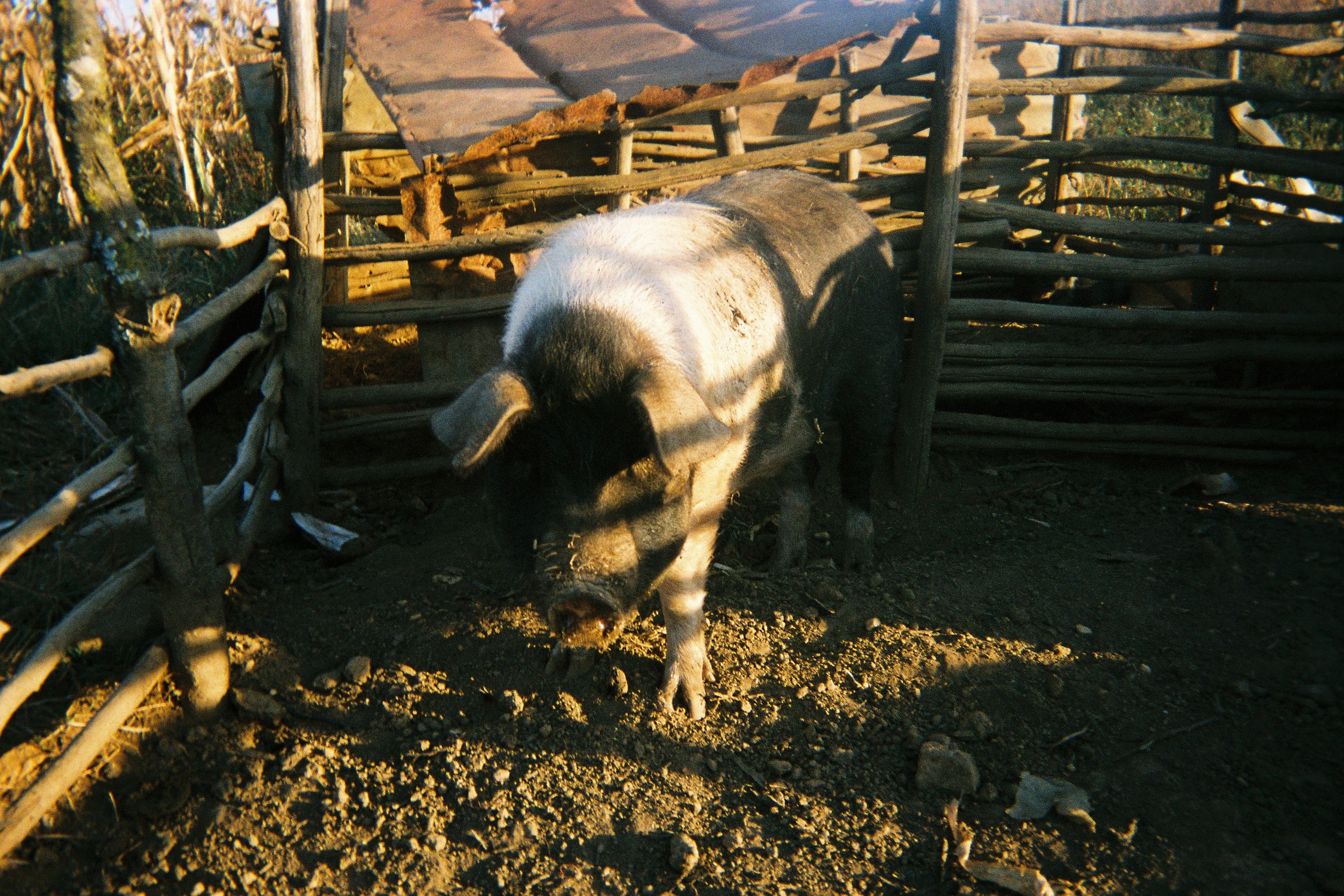
I take the photograph of my neighbor's pig because my neighbor is still saying girls are not allowed to take care of animals. We are all equal so we must do the same work.

This shelter is very important to me because without a shelter, there is no place which protect me. Nowadays other children they sleep in a street because of lack of shelter. I sleep in the shelter, cook etc.

This young boy is trying to make some money so that he can buy his favorite food and pay for his school material.

As the father of the house I believe I should support my family so we can all survive in my family but it is hard because finding ingrediants to make my plant survive such as water and things to make animals that eat the plants stop.

As young children we believe that grandmothers are important. As the child in the picture wash the grandmother legs because she can't reach her legs. Usually we found that grandfathers help the boys most of the time a grandmothers help the girls.




She help people in different issues and diseases like HIV/AIDS, especially the girls. Boys say they don't want anyone to talk to them like girls because they know everything that is happening on earth. Most of girls they don't know how to keep themselves safe.

I take the photograph of my school chairperson because he is my role model. He always encourage the youth to think about their future. He always tells the youth that they are the future leaders. He inspires me to focus on my schoolwork and forget about doing useless things like drinking alcohol and dating.
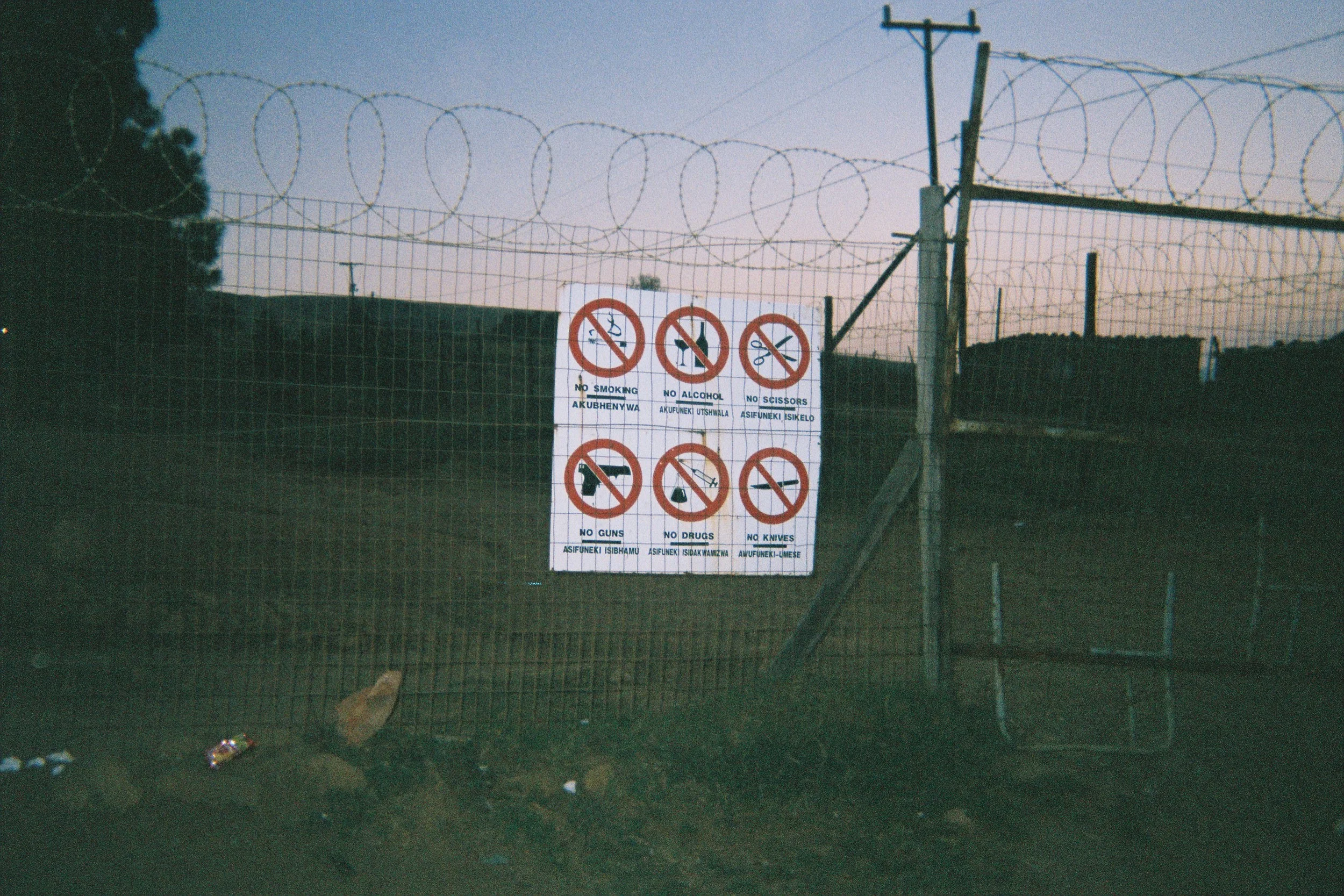
If I am inside the school I feel safe. There are things that are not allowed inside. So we are all protected from things from outside.



These children are doing a Zulu dance. It is important to do our culture and I wish to tell people that they have to know where do we come from.
A Zulu Song
Wematshishi nijolelani? / Zinsiawa zisaphila emhlabeni asinandaba thina / Nasisisu ngaphambil' asinendaba thina.
































































I choose to take this photo
These images were taken by grade 7-12 students from rural KwaZulu Natal and Eastern Cape provinces in South Africa as part of part of a pilot project by Sonke Gender Justice Network called PhotoVoice. Sonke hoped to explore the use of photography to both teach and learn from children about human rights and gender equality issues in their communities. Children were given disposable cameras and a crash course in the basics of photography (lesson plan here: please employ liberally!) as well as a series of trainings by local organizers regarding human rights issues and gender equality. Then they were asked to give voice to the issues that concerned them, as well as to show positive actions that people were taking to address those issues. They were taught to record their observations in notebooks (here's a sample); Sonke staff then selected photos and text to exhibit at the school.
On the day of the exhibit, hundreds of community members came to hear what the children had to say. They were also encouraged to reflect on the questions posed by the children. Some images were printed onto post cards addressed to the town mayor and other local politicians, and at the end of the exhibit, visitors were encouraged to write messages to these actors asking for action. This material has since been used to guide policy advocacy. In 2009, the children's photographs and writing were displayed at the UN. You can meet some of the photographers and see images of the exhibit day along with many of the final posters (PDF) in the students' own writing.
The title of this gallery was taken from a student journal.